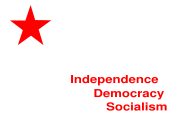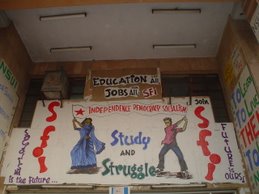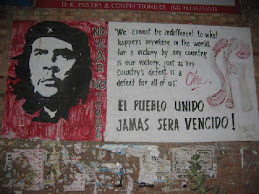AISA must come out clearly on its position on Restoring JNUSU Election!! Why beat around the bush?
Why such tentativeness, ambiguity and inertia in taking a clear and concrete stand??
AISA’s pamphlet issued yesterday has created some confusion on the issue of the restoration of JNUSU elections. In the first half of the pamphlet, AISA has stated that the elections have to be held at the earliest to ensure due representation of students and that the JNUSU Constitution must be defended against every onslaught. But it complains that there is no roadmap available to carry this agenda forward. Then it goes on to brand all the other organizations who have taken the position that the JNUSU elections should now be held in accordance with the JNUSU Constitution as sectarian and driven by oneupmanship! What does one conclude from this?
AISA has stated: "All suggestions including holding of JNUSU elections according to JNUSU Constitution must be explored with an open mind in consultation with larger campus community and beyond, given the present context of the ongoing case". But what is AISA's position on the issue? That should first be made clear, especilly because all the JNUSU office bearers are from the AISA. They should clarify as to whether “exploring all options with an open mind” also means agreeing to the JSC lawyer’s opinion of holding elections by adhering to the recommendations of the Lyngdoh Committee? That is the crux of the matter. There is no point beating around the bush.
SFI is of the opinion that given the referral of the very constitutional validity of the Lyngdoh committee to a five judge bench, accepting its recommendations to conduct JNUSU elections at this stage does not make sense, from either a legal or political point of view. In view of the changed nature of the court proceedings, the students of JNU can decide through a University General Body Meeting to conduct the elections according to the JNUSU Constitution and an Election Committee can be subsequently elected through School GBMs as per the Constitution. If the UGBM agrees on having the elections as per the JNUSU Constitution, this can happen smoothly. If this is challenged in the Supreme Court, the case can be eminently argued. The Supreme Court would get to know that the students of JNU want the restoration of the JNUSU Constitution and not the Lyngdoh committee recommendations. Given that the Supreme Court is itself is deliberating on the constitutional validity of the Lyngdoh committee, it may agree with the JNU students at least till the final judgement is delivered on the Lyngdoh committee.
AISA's ambiguous position on the issue can either be interpreted as a do-nothing approach or a meek submission to the Lyngdoh recommendations, which the JSC has fought till date. It is unfortunate that the organisation that is supposed to provide leadership to the JNUSU is so tentative and confused on the issue. To conceal its own indecisiveness and inertia, it is cynically abusing other student organisations of sectarianism. Such defeatism will only harm the collective cause of restoring the JNUSU elections.
SFI appeals to the JNUSU office bearers to adopt a pro-active approach in this regard. An UGBM should be convened at a suitable date, giving adequate time for consultations within the student community, especially within and between the student organisations, so that a broad based consensus emerges on the issue. SFI is committed to work for a firm and decisive mandate to hold JNUSU elections in this semester according to the JNUSU Constitution.





No comments:
Post a Comment